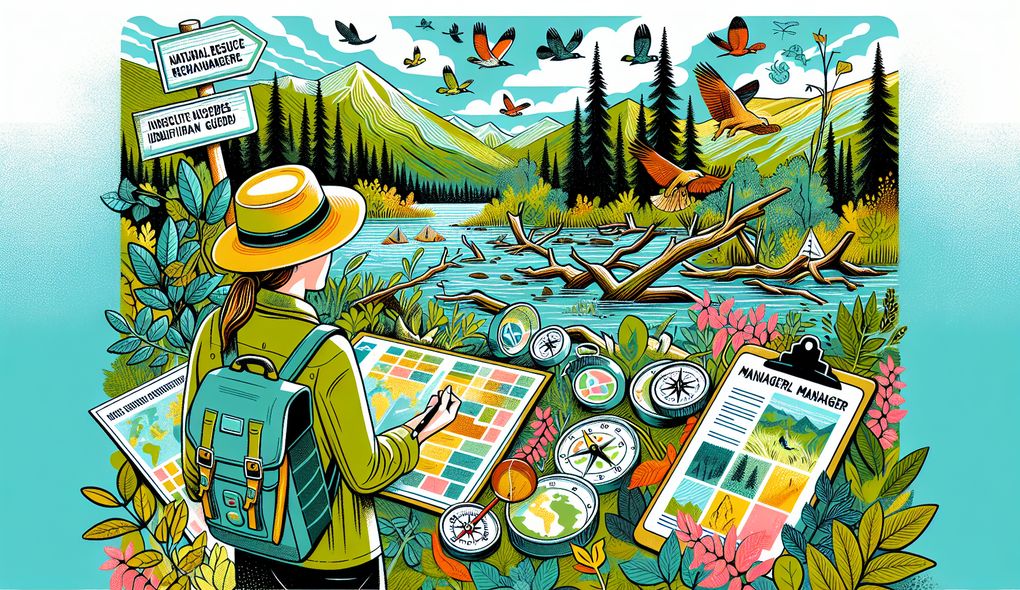How do you ensure that resource management plans consider the needs of future generations?
JUNIOR LEVEL

Sample answer to the question:
To ensure that resource management plans consider the needs of future generations, I believe in taking a long-term and sustainable approach. This involves conducting thorough research and data collection to understand the current state of the resources and their potential impact in the future. I would collaborate with experts and stakeholders to develop comprehensive plans that address potential challenges and incorporate measures for conservation and sustainability. Regular monitoring and evaluation would be essential to track the effectiveness of the plans and make any necessary adjustments. Communication and education efforts would also play a crucial role in raising awareness and garnering support for the long-term goals of resource management.
Here is a more solid answer:
To ensure that resource management plans consider the needs of future generations, I would begin by conducting a comprehensive assessment of the resources in question. This would involve collecting data on wildlife, plant species, and ecosystems, as well as researching potential environmental impacts and conservation efforts. I would then collaborate with a team of experts, including researchers, government agencies, and non-profit organizations, to develop well-informed and inclusive plans. Regular communication and collaboration with stakeholders would be crucial throughout the process, ensuring that the plans reflect their needs and concerns. In addition, I would incorporate measures for long-term monitoring and evaluation to track the effectiveness of the plans and make any necessary adjustments. Finally, I would prioritize education and outreach programs to raise awareness and foster a sense of responsibility and support for the conservation efforts among future generations.
Why is this a more solid answer?
The solid answer builds upon the basic answer by providing more specific details. It highlights the candidate's experience in conducting comprehensive assessments and collaborating with a variety of stakeholders. Additionally, it emphasizes the importance of monitoring and evaluation as well as education and outreach programs. However, the answer could still be improved with specific examples of past projects or experiences related to resource management planning and communication and collaboration.
An example of a exceptional answer:
Ensuring that resource management plans consider the needs of future generations requires a holistic and proactive approach. Drawing upon my experience as a natural resource manager, I would begin by conducting extensive research and data collection to gain a deep understanding of the resources and their ecological dynamics. This would involve conducting field surveys, analyzing GIS data, and consulting with subject matter experts. I would then facilitate collaborative planning sessions, bringing together stakeholders from diverse backgrounds, including local communities, government agencies, and environmental organizations. By fostering open and inclusive dialogue, we would identify and address potential conflicts, and generate innovative solutions that balance economic development with conservation goals. Furthermore, I would implement robust monitoring and evaluation systems, leveraging technology and analytics to track the effectiveness of the plans over time. Regular reporting and communication would ensure transparency and accountability, while also providing an opportunity to engage and educate the public. By instilling a sense of stewardship and cultivating future leaders through educational programs, we can ensure the protection and sustainable use of our natural resources for generations to come.
Why is this an exceptional answer?
The exceptional answer provides a comprehensive and detailed response that showcases the candidate's expertise in resource management planning, communication, collaboration, and education. It demonstrates a deep understanding of the ecological dynamics involved and highlights the candidate's proactive approach to addressing potential conflicts and generating innovative solutions. The answer also emphasizes the use of technology for monitoring and evaluation, as well as transparency and public engagement. Overall, the answer goes above and beyond by providing a holistic perspective and incorporating key aspects from the job description.
How to prepare for this question:
- Research and stay updated on current environmental issues and trends related to resource management.
- Familiarize yourself with relevant ecological principles and environmental regulations.
- Gain experience in conducting field research, collecting data, and analyzing GIS information.
- Develop strong oral and written communication skills.
- Practice collaboration and teamwork by engaging in group projects or volunteering with environmental organizations.
- Be prepared to provide specific examples of past experiences or projects related to resource management planning and communication and collaboration.
What are interviewers evaluating with this question?
- Resource management planning
- Communication and collaboration
Want content like this in your inbox? Sign Up for our Newsletter
Related Interview Questions
How do you incorporate traditional knowledge and cultural values into resource management practices?
Describe your experience in developing and implementing strategies for renewable energy development.

